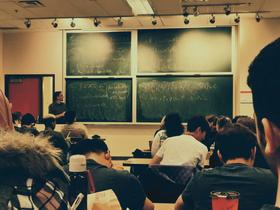Community college campuses have historically had a reputation for having many older students who have returned to college after raising a family, serving in the military, or working for many years. While the average age of a community college student is still 29, there are many younger faces beginning to walk the halls of community colleges. In fact, from 2002 to 2011, the number of high school students enrolled in college courses increased by 67 percent, mic skills can enroll into 1.3 million students.
High School Partnerships Fuel Enrollment
This shift towards a younger student population is largely the result of partnerships with local high schools. Kids as young as 13 and 14 years of age are enrolling in college courses and earning what’s known as dual credit – courses that count toward both high school and college graduation requirements. General education courses such as English, maths, and science are far and away the most popular courses taken by high school-aged students. But others take advantage of non-core course offerings such as humanities, fine arts, and physical education, as well. The result is that students are graduating with an associate’s degree before they even graduate from high school.
Baltimore County’s Diploma to Degree Program
This video explains the pros and cons of earning college credits in high school.
In Baltimore County, Maryland, students who demonstrate exceptional academic skills can enroll in















































